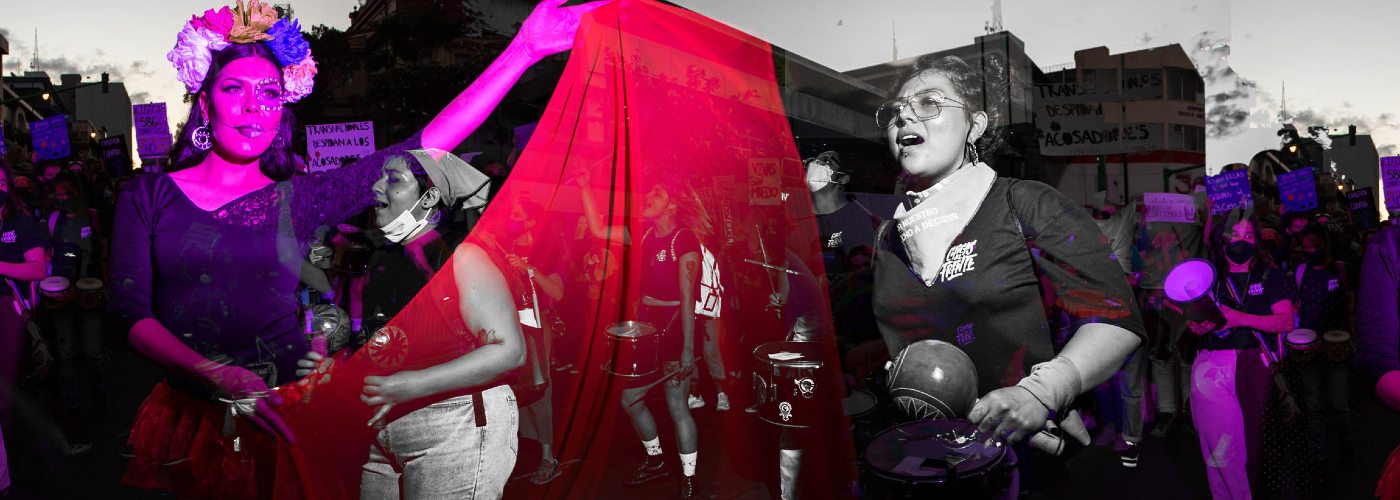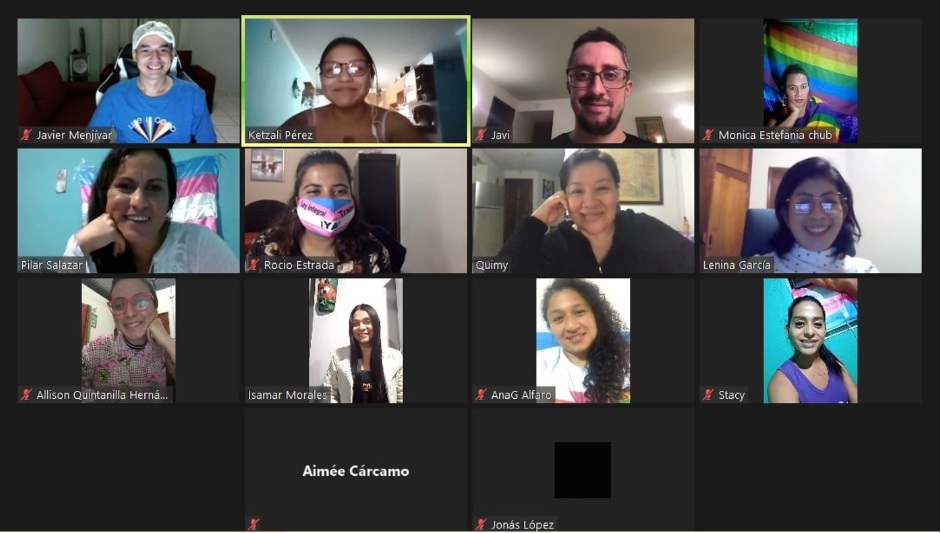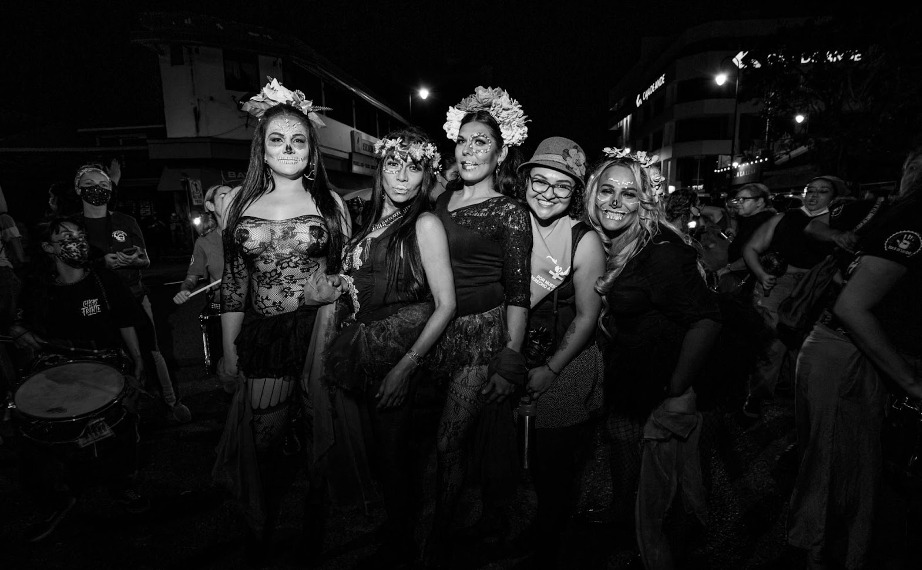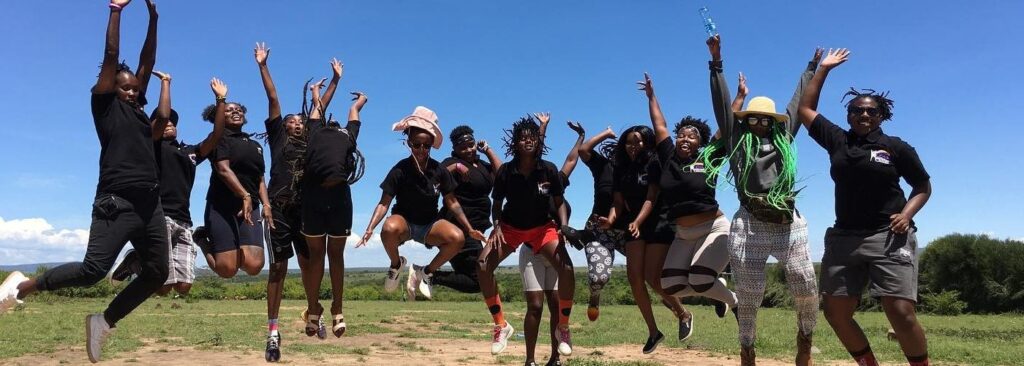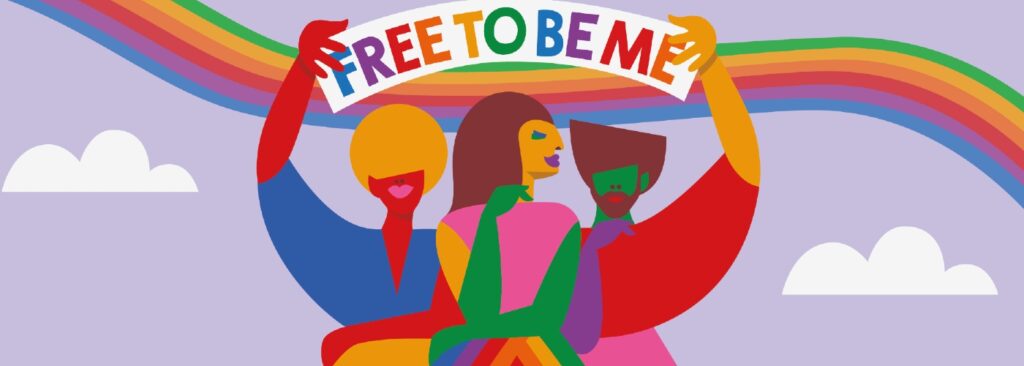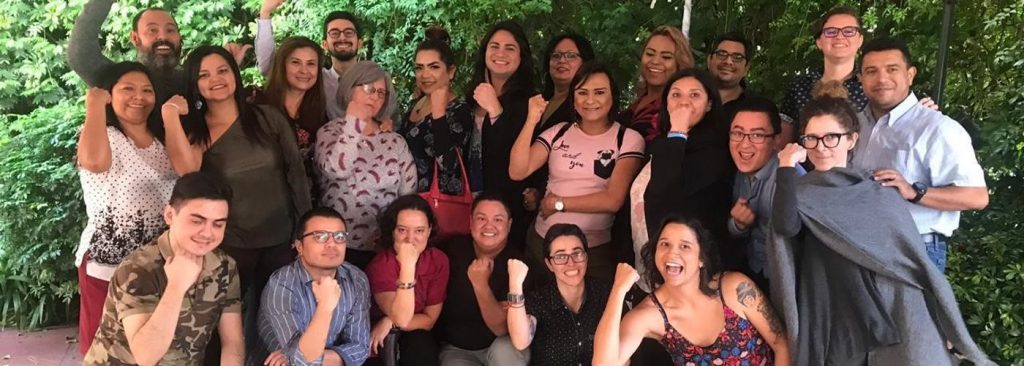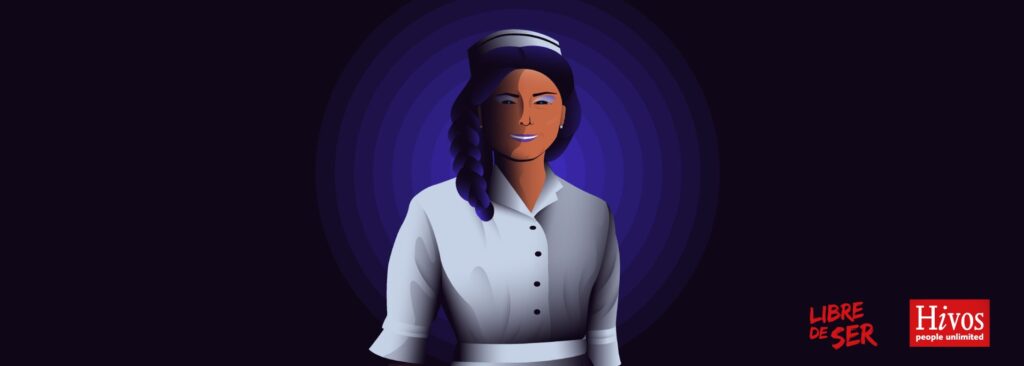By Mariana Arce Mercado, Libre de Ser Me Communication Advisor
Hivos’ Libre de Ser (Free to Be Me) project first saw the light in September 2019. Conceived as a way to improve conditions that safeguard the life, integrity and rights of LGBTIQ+ people in Central America, it focused particularly on trans people.
Libre de Ser ran for three years, fatefully also in the middle of a pandemic. But despite the Covid-19 crisis, Libre de Ser became a refuge, a safe space to meet, and a source of hope and inspiration for LGBTIQ+ activists in Central America. For example, there was the “Creation Room.” This was a virtual communication laboratory that helped journalists and activists to create new, more accurate LGBTIQ+ narratives. They produced 16 multi-format communication products and the LGBTIQ+ community journalism manual, Free to Communicate.
“The Creation Room was an oasis of creation and community in the midst of the pandemic. It showed us that we were not alone. That throughout the region there are community journalists documenting and telling the truth. Activists who, despite their totalitarian governments, are still on the streets, mobilizing for more and better rights. And when journalists and activists collaborate following the principals of popular education, their work embodies the true voices and feelings of the people. It becomes a totally new way of communicating whose essence comes from people, lived experiences, and collective reflections.”
The Creation Room editorial team, 2021.
Data and alliances to transform realities
The other pillar of Libre de Ser was generating data to develop more comprehensive and effective security measures for LGBTIQ+ people. Some of the project’s important data-related achievements are:
- A mapping to improve data on violence based on sexual orientation and gender identity
- The CUCR open data portal on LGBTIQ+ violence in Honduras
- The Open Data and Advocacy School and the LGBTIQ+ Open Data Center of the Visibles organization
- Workshops on open justice, jurisprudence and open LGBTIQ+ data
All of these efforts represent significant advances in access to justice for LGBTIQ+ people. The data generated provides hard evidence of rights violations against diverse populations and puts long-excluded populations at the center of their legal needs. The data also makes official records available to people and organizations engaged in activism and defending the rights of LGBTIQ+ populations.
These activities also prove that civil society organizations and state entities can work together to achieve significant improvements in the living conditions of LGBTIQ+ people in Central America.
“Throughout the project, we explored the best ways to combat disinformation and insert ‘new narratives’, data and ideas into the hearts and minds of citizens and administrators of justice. We talked about quality, open data, open justice, data art, journalism, pop culture, digital and street art. We made a sustained effort to build bridges and establish the allies with whom we’ve worked for the last three years. Now we can say metaphorically that we were like farmers: we prepared the soil, sowed the seed, and let the germination process start. We laid the foundations for the growth and harvest that will follow. That’s why we feel satisfied and know we’ll continue the fight from other trenches, but with the same goal.”
Saira Ortega, Libre de Ser Project Manager
Art as a transformative tool
Libre de Ser always opted to use art as a tool for social transformation. The various artistic activities it sponsored invited people to reflect on the struggles of diverse populations for their rights. Like the performances by Regina José Galindo, Emma Segura’s art exhibit, the street happenings by Transvida and Retumba on International Women’s Day in Costa Rica, and the documentaries “Common Reflexes” and “Water for my Memory” on LGBTIQ+ populations.
“For me, Libre de Ser has been a transformative experience in many ways. As a diverse person, it has allowed me to empower myself, to know our rights and the debts that are still owed us. I was very fortunate to meet such wonderful people, admire their work and life stories, question my privileges, and reflect on how to contribute to our struggle.”
Mariana Arce, Libre de Ser Communication Advisor
The contributions and willingness of partner organizations, public institutions, activists, the media, universities, and civil society organizations was key for Libre de Ser. They all helped it become a vibrant meeting place for emotions and experiences. We especially thank the Dutch Embassy in Central America for all the follow-up and support they provided.
The road ahead remains wide and complex. The fight must continue, even more so in a turbulent region where fundamentalist positions are advancing and regressive bills are the order of the day. We must continue to support the admirable work of LGBTIQ+ activists, both financially and with technical advice. Only together will we be FREE TO BE!
“Maybe we won’t see the outcome of these struggles, but we hope that new generations will and that they’ll say there was a group of girls who fought and who shouted out their rights in the streets.”
Stacy Aragón, trans woman and activist from El Salvador
The Dutch Embassy in Central America provided Libre de Ser with financial and strategic support. Hivos Latin America implemented it together with these partner organizations: Visibles of Guatemala, ASPIDH Arcoiris Trans of El Salvador, Colectivo Unidad Color Rosa (CUCR) of Honduras, and the Sustainable Development Network (RDS) and the National LGBTIQ+ Table of Nicaragua.
Water for my Memory:

